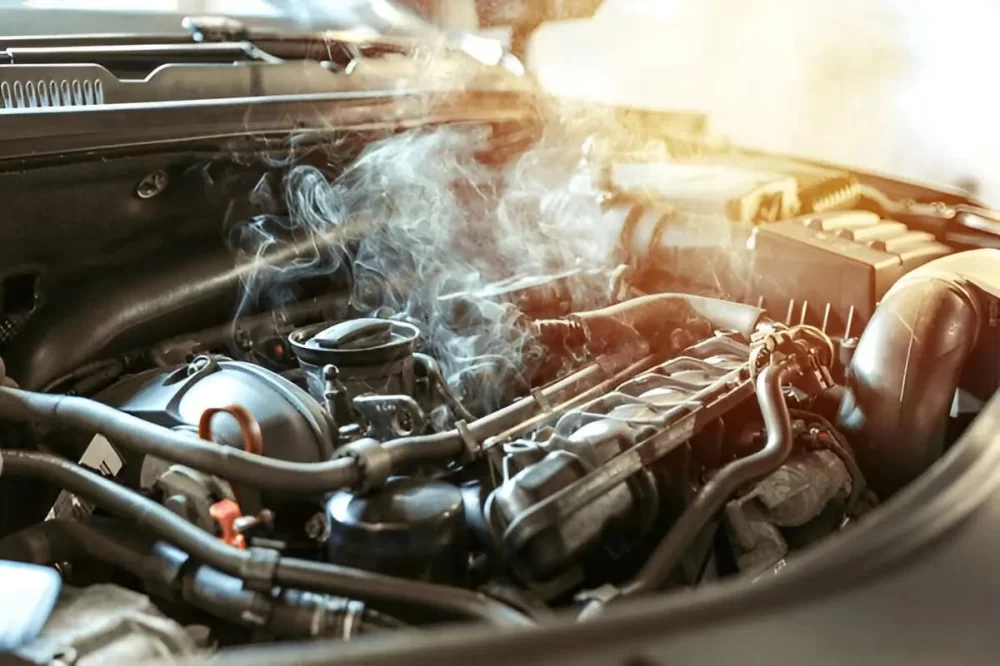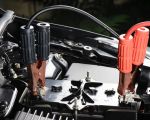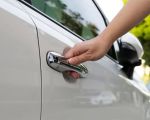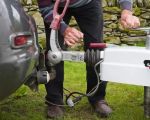- Understanding-Why-Your-Car-Engine-Overheats-in-the-Heat
- Signs-Your-Car-Is-About-to-Overheat
- What-to-Do-When-Your-Car-Overheats
- How-to-Prevent-Engine-Overheating-in-Summer
- Real-Case-A-Highway-Breakdown-in-July
- Expert-Tips-and-Why-You-Should-Consider-Rescue-Towing
1. Understanding Why Your Car Engine Overheats in the Heat
During the summer months, the chances of your car engine overheating in the heat increase significantly. The heat puts extra stress on the engine, especially if your cooling system isn't in perfect condition. The radiator, coolant, thermostat, and water pump all play vital roles in regulating your engine’s temperature. If one of them fails or if coolant levels are low, the system can't function properly, and your engine temperature will rise quickly.
Environmental factors such as stop-and-go traffic, driving uphill with a heavy load, or a failing air conditioning system can also exacerbate the problem. Understanding these factors is the first step toward knowing what to do if your car engine overheats in the heat.

Firestone Complete Auto Care
1933 N Placentia Ave, Fullerton, CA 92831, USA
2. Signs Your Car Is About to Overheat
Recognizing early signs of engine overheating can help you act before serious damage occurs. The most obvious warning is the temperature gauge creeping into the red zone. But there are other signs too:

Complete Auto Service of Ann Arbor
2890 Jackson Ave, Ann Arbor, MI 48103, USA
2.1 Steam or smoke from the hood
This is a clear indicator your engine is too hot. It often looks like smoke but is usually steam from the radiator.
2.2 Strange odors
A sweet smell may indicate leaking coolant, while a burnt odor could mean oil or other engine fluids are getting too hot.
2.3 Performance issues
If your vehicle starts to lose power or hesitates when you accelerate, it could be due to an overheating engine trying to protect itself.
3. What to Do When Your Car Overheats
If you notice your car is overheating, follow these steps to avoid permanent damage:
3.1 Pull over safely and turn off the engine
Continuing to drive can cause irreversible damage. Pull over and let the car cool down for at least 15–30 minutes.
3.2 Open the hood cautiously
Wait until the steam dissipates and it’s safe to check under the hood. Never open the radiator cap while it’s still hot—it can release scalding steam.
3.3 Check coolant levels
If coolant is low, this could be the cause of the overheating. Only refill when the engine is cool. If coolant isn’t available, adding water can help temporarily.
3.4 Call for help
If you're unsure about the problem or can't solve it roadside, contacting a professional is the safest route. This is where services like Rescue & Towing can be lifesavers—offering quick, professional help to get you back on the road safely.
4. How to Prevent Engine Overheating in Summer
Prevention is always better than an emergency repair. Here are strategies to keep your engine cool in the hottest months:
4.1 Regular maintenance
Get your cooling system checked before the summer. Ensure coolant levels are correct and that your radiator and hoses are in good shape.
4.2 Keep an eye on dashboard warnings
Never ignore that rising needle or dashboard light. These warnings are there for a reason.
4.3 Reduce strain on your vehicle
Try not to overload your car, especially when driving uphill or in heavy traffic. Turn off the air conditioner if the engine is struggling.
4.4 Use sunshades and park in shade
Interior heat can affect your car’s electronics and make the engine work harder. Simple tools like windshield shades help more than you'd think.
5. Real Case: A Highway Breakdown in July
Let me share a real story from last summer. A customer was driving across Nevada in mid-July. The outside temperature was around 110°F (43°C). About halfway through their trip, the car began to lose power. Steam billowed from the hood, and the temperature gauge maxed out. They did the right thing—pulled over immediately and called Rescue & Towing.
Our team arrived within 40 minutes, diagnosed a blown radiator hose, and arranged a tow to the nearest mechanic. The engine was saved from major damage because they acted fast. This kind of response can make the difference between a $100 fix and a $3,000 engine replacement.
6. Expert Tips and Why You Should Consider Rescue & Towing
Having a reliable support system is crucial, especially during the summer. If your vehicle shows any signs of overheating, don’t take chances. Even if you manage to cool it down temporarily, unseen damage might already be developing.
With Rescue & Towing, you get fast, professional service when you need it most—whether it's towing, battery support, or on-site diagnostics. We understand the stress of a summer breakdown and are ready to offer the support you need without the confusion or delay.
Being prepared and educated can keep a minor problem from becoming a major headache. And when the heat is on, knowing what to do if your car engine overheats in the heat could save your trip—and your wallet.






























